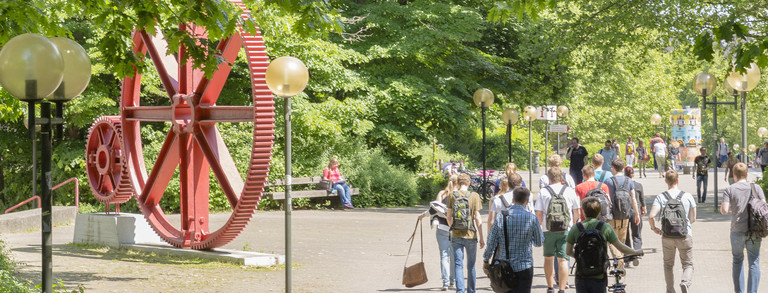The 9-Euro-Ticket and Deutschland-Ticket as socio-ecological transport policy measures – an evaluation based on panel data
Local public transport (LPT) is the backbone of sustainable local and regional transport systems. As part of the 2022 'energy cost relief package' the German federal government introduced a ‚9-Euro-ticket‘ (9ET) to reduce household energy costs. The ticket was the most relevant field experiment in LPT in Germany to date. It was widely considered as a success due to high ticket sales and associated mode shift effects. As a result, in May 2023 the Deutschland-Ticket (DT) was introduced for a monthly price of 49€ (later increased to 58€). While there are differences between DT and 9ET, both permit the use of all LPT modes in the whole country, which is unprecedented.
This research project analyses data collected in a panel survey of residents in five study areas in Dortmund and Schwerte. Information on transport mode ownership, mode use, modal attitudes and opinions towards the 9ET and DT was collected for a total of six points in time between 2022 and 2025. The following research question guides the project:
To what extent have the 9ET and DT led to more ecologically and socially sustainable patterns of daily travel behaviour? This overarching question is articulated in several sub-questions:
Research question I: Modal attitudes
- To what extent have modal attitudes changed over time and what factors have shaped these changes?
Research question II: Season ticket ownership
- To what extent has season ticket ownership changed over time and what factors have shaped these changes?
Research question III: Travel mode use
- To what extent has mode use changed over time and what factors have shaped these changes?
The project will test three hypotheses:
- Mode shift hypothesis (from car to LPT): The new tickets resulted in a mode shift from car use to LPT.
- Induction hypothesis: The tickets generated (induced) more LPT use, but not at the expense of car use.
- Inclusion hypothesis: The tickets enabled low-income population groups to undertake more travel and, thus, to achieve better social inclusion. This affected both travel behaviour and opinions towards the new tickets.
Project start and end: 01.03.2025 – 31.08.2026
Funding agency: Deutsche Forschungsgemeinschaft (DFG, German Research Foundation)
Project number: SCHE 1692/16-1
Project partner
ILS Research gGmbH, Dortmund, Dr.-Ing. Janna Albrecht
Further cooperation partners
Matthias Cremer-Schulte, TU Dortmund
Prof. Dr. Eva Heinen, ETH Zürich
Dr. Thomas Klinger, ILS Dortmund
Contact
Dr. Giulio Mattioli
giulio.mattioli@tu-dortmund.de, Telephone ++49 (0)231 755-4144
Prof. Dr. Joachim Scheiner
joachim.scheiner@tu-dortmund.de
Telephone ++49 (0) 231 755 4822

